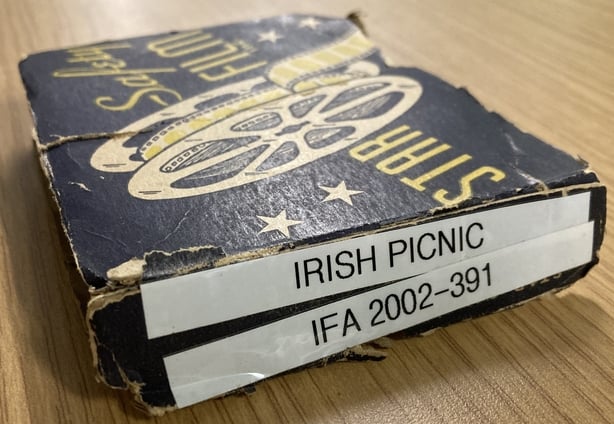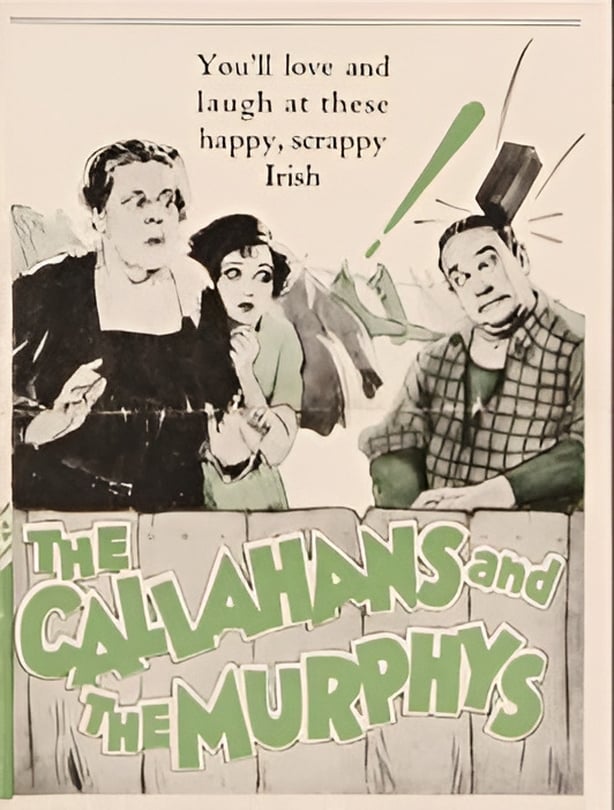It is thought that between 75- 90 percent of films from the silent era no longer survive. The reasons for this are varied; studios dumped many silent and black and white films when sound and colour were introduced, believing that the new technology would render the older films valueless. Equally, the instability of the nitrate stock on which films were printed was a fire hazard, resulting in deterioration or destruction if suitable storage wasn't available.
As Ireland didn’t have a film archive until the 1980s, no attempt was made to preserve our small silent output, but we are lucky that due to the ease with which silent films could be adapted for foreign territories, a number of silent films of Irish interest have survived in collections around the world. Over the last 30 years the IFI Irish Film Archive has undertaken a programme of repatriation, with a number of these films now available on the IFI Archive player.
The discovery of a lost film is rare but it’s not unknown. In this era of online communication, archives can share information about their holdings with ease and digitizing reels allows material to be more readily exchanged and identified.

For two decades a single reel of film sat on the shelves of the IFI Archive vaults. Unassumingly named "An Irish Picnic", it had come in to us from film collector Paul Balbirnie and was catalogued by an Archive employee who failed to note anything remarkable about it. Last summer we hired an enthusiastic American archivist named Matthias Smith who has an encyclopedic knowledge of silent cinema. Browsing our database records to acquaint himself with our silent holdings he made a startling discovery. "An Irish Picnic" is actually a controversial scene from The Callahans and the Murphys, a 1927 MGM film that was believed to be lost.
This comedy film adapted from a novel by Kathleen Norris, stars Marie Dressler and Polly Moran and tells the story of two Irish immigrant families living in a tenement, with much of the action centering around St Patrick’s Day. When the film was released it caused outrage, with the Catholic Church calling for it to be banned, and the Irish diaspora picketing cinemas that screened it. The scene that caused the most consternation was set at a picnic on St Patrick’s Day, where the characters celebrate Ireland’s national holiday by dancing, boozing and brawling. This proved to be a stereotype too far for the Irish abroad. In response to the violent reaction the film provoked MGM initially recut It, removing this objectionable scene. However, when this failed to placate Irish groups in America, England and Australia, MGM withdrew the film, allegedly destroying all the prints.

Despite its short period in distribution, the film had a long lasting impact. The moral outrage it ignited led the Roman Catholic Church to become actively involved in monitoring Hollywood output and to make recommendations about what was and wasn’t acceptable for good catholic audiences. This interference was eventually formalized in the 1930s, becoming the Production or Hays Code, which regulated the content of Hollywood films until the late 1960s.
Realising that our one reel film "An Irish Picnic" was actually the excised scene from The Callahans and the Murphys was thrilling for the staff of the IFI Archive. It is rare that fragments of films from this era are discovered, let alone segments that have such a central place in cinema and Irish American history. In order to celebrate this historic find we have digitized this controversial St Patrick’s Day scene and have made it available to the public for the first time in 97 years! La Feile Padraig!
Watch more from the IFI Archive Player here.


